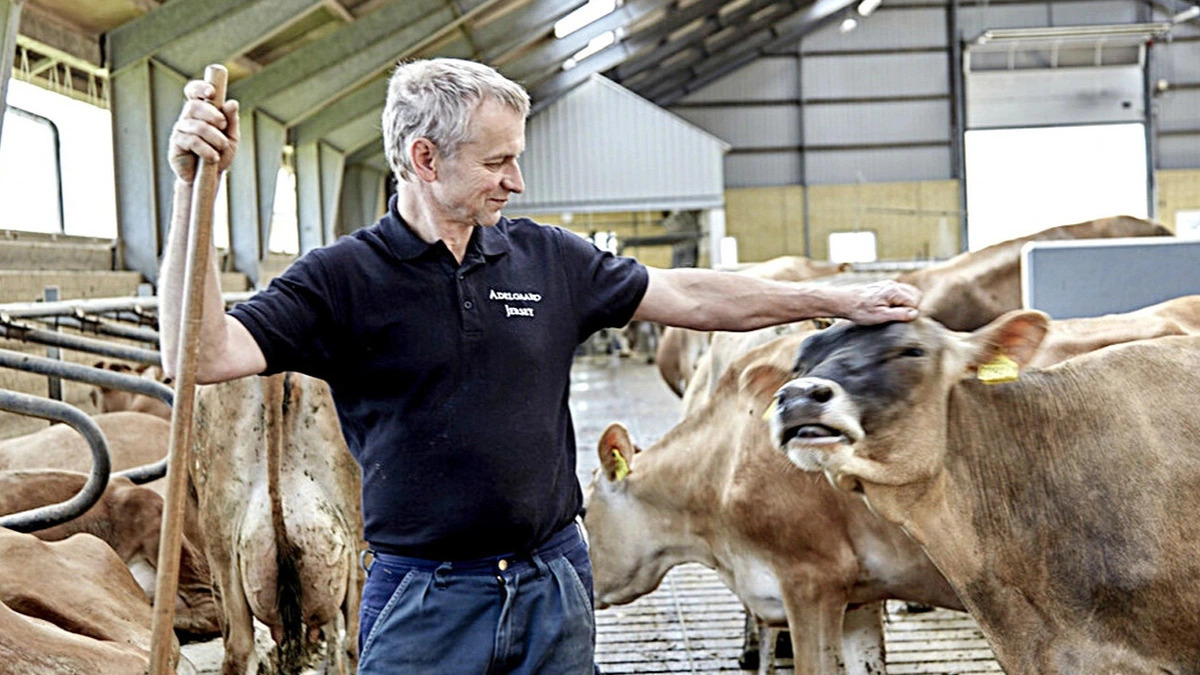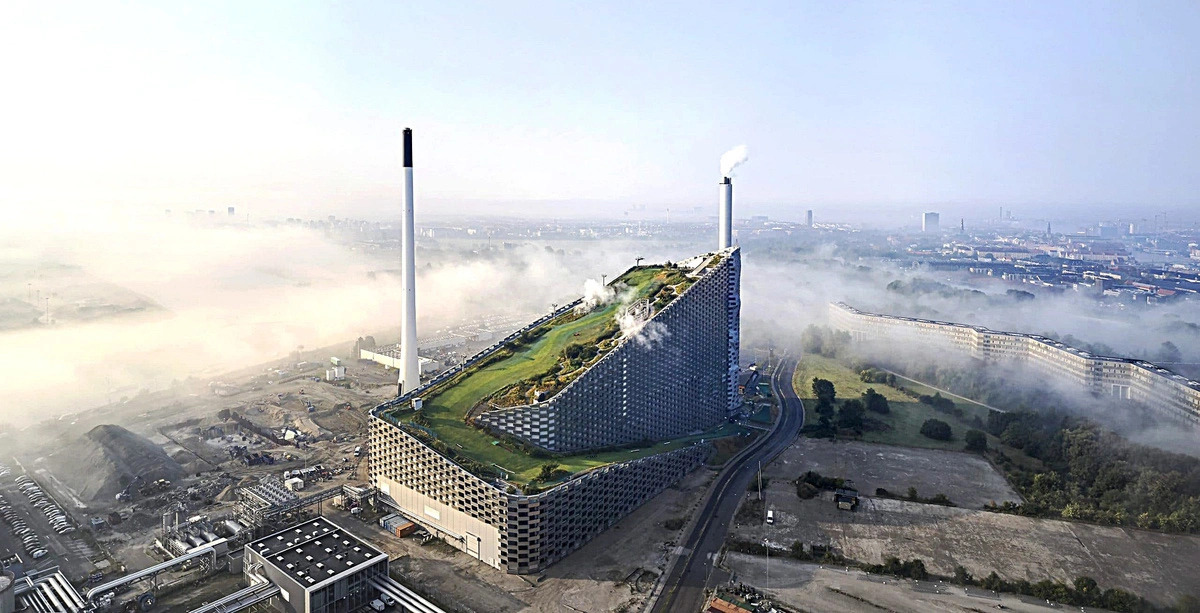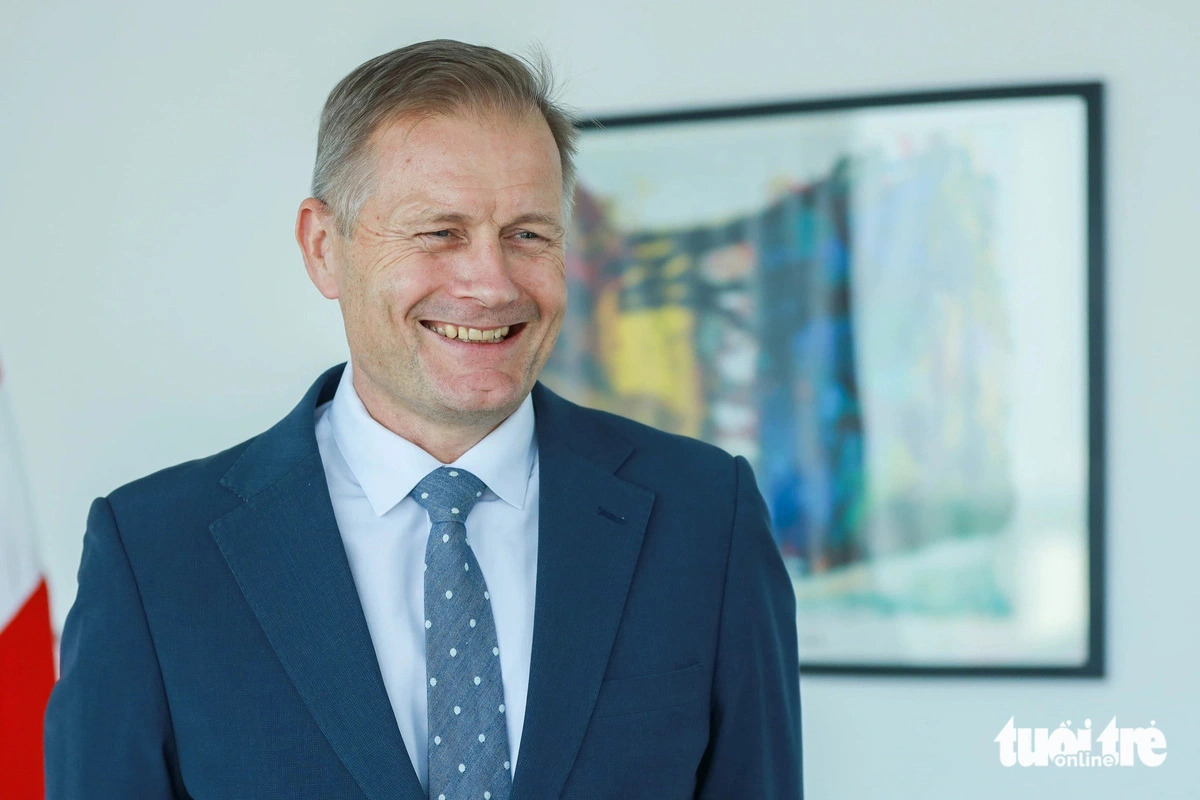Denmark's success demonstrates that economic growth can occur alongside reductions in energy consumption and emissions, providing valuable insights for developing countries like Vietnam.
Denmark began its shift toward sustainability in the 1970s during the global oil crisis, proving that prosperity does not require increased energy consumption or emissions.
Since 1990, Denmark’s gross domestic product (GDP) has grown 75 percent, while energy use has dropped 11 percent, CO2 emissions has fallen 41 percent, and green careers have spiked 31 percent, according to Danish Ambassador Nicolai Prytz.
Today, over 50 percent of Denmark’s electricity is generated from wind, establishing it as a global leader in renewable energy.
A notable example is Vindeby, the world's first offshore wind farm, constructed off the coast of Denmark in 1991.
Denmark also excels in waste-to-energy initiatives, significantly cutting landfill usage and improving waste management.
In 1992, the Northern European country implemented a comprehensive waste plan that promoted recycling, biogas production, and waste incineration for energy.
The plan included imposing landfill taxes, continued encouraging biogas use for electricity, and utilizing waste incineration to heat residences.
Landfill waste has decreased to two percent today from 44 percent in 1988, with the country expecting to reach climate neutrality in waste management by 2030.
Ambassador Prytz mentioned Denmark's goal to increase urban recycling rates to 55 percent by 2025 and 65 percent by 2035.
Consumers in Denmark benefit from a deposit refund system for returning plastic and glass bottles at supermarkets, contributing to record-high bottle collection rates across Europe.
Denmark is advancing carbon-neutral agriculture with a target of achieving it by 2050.
Between 1990 and 2016, the country successfully reduced CO2 emissions by 16 percent while simultaneously increasing food production by over 30 percent.
|
|
| The Amager Bakke waste-to-energy plant in Denmark. Photo: State of Green |
Global dairy cooperative Arla exemplifies this approach, rewarding farmers financially based on their lack of carbon footprint, or the higher the farmers' eco-friendlier practice is, the higher their earnings become.
According to Ambassador Prytz, the key to accelerating the green transition lies in public-private partnerships among government and research organizations.
Other notable initiatives include Denmark’s carbon tax on livestock, fertilizers, and agricultural land, all of which coincide with promoting green products, particularly organic and plant-based foods.
The Danish Energy Agency and Vietnam’s Ministry of Industry and Trade have collaborated since 2013 to launch the Vietnam-Denmark Energy Partnership, which will run from 2020 to 2025 and is currently in its third phase.
Ambassador Prytz viewed offshore wind energy as a critical element of the Vietnam-Denmark energy partnership, particularly as it will play a significant role in Vietnam’s future energy mix.
He pointed out that the cost of offshore wind power has significantly gone down in recent years, making it one of the most affordable energy options.
With an extensive coastline and favorable conditions for offshore wind, Vietnam is well positioned to transition from fossil fuels to renewable energy and effectively utilize its natural resources.
To achieve this ambitious goal of establishing 84 GW of offshore wind capacity by 2050, Vietnam must accelerate the development of a transparent and predictable regulatory framework to attract substantial investments in this energy source.
|
|
| Nicolai Prytz, Danish Ambassador to Vietnam. Photo: Danh Khang / Tuoi Tre |
The 'Vietnam Energy Outlook Report – Pathways To Net-Zero' is collaboratively produced by Vietnam’s Electricity and Renewable Energy Authority, Denmark’s Energy Agency, and the Danish Embassy.
It recommends Vietnam designate offshore areas, prepare port infrastructure, and strengthen the electrical grid.
According to the Danish ambassador, his country's history illustrates that offshore wind is essential not only for the green transition but also for creating new industries, business opportunities, and green jobs.
Prytz shared that Denmark's transition was facilitated by the growth of the operation of green technology companies, particularly in offshore wind energy, several of which have now opened in Vietnam.
At the United Nations Climate Change Conference (COP26) in the UK in 2021, Vietnam made a bold pledge to reach net-zero emissions by 2050, which demands substantial investments in renewable energy and energy efficiency.
The 'Nordic Day - Toward Green Goals' at The Green Economy Forum & Exhibition (GEFE) 2024, lasting from Monday to Wednesday in Ho Chi Minh City, highlights the sustainable development achievements and successful green growth practices of Nordic countries while fostering cooperation between Vietnam and Northern Europe.
Focusing on food systems, energy transition, circular economy, and youth climate action, the day's agenda brings together leading experts from Vietnam and the Nordic countries to share knowledge and expertise in addressing climate change and building a green future.
Prytz noted that Denmark has enjoyed a successful partnership with Vietnam for the past 11 years and is fortunate to have a private sector ready to invest in and support the Southeast Asian country’s green transition.
Like us on Facebook or follow us on Twitter to get the latest news about Vietnam!





















































